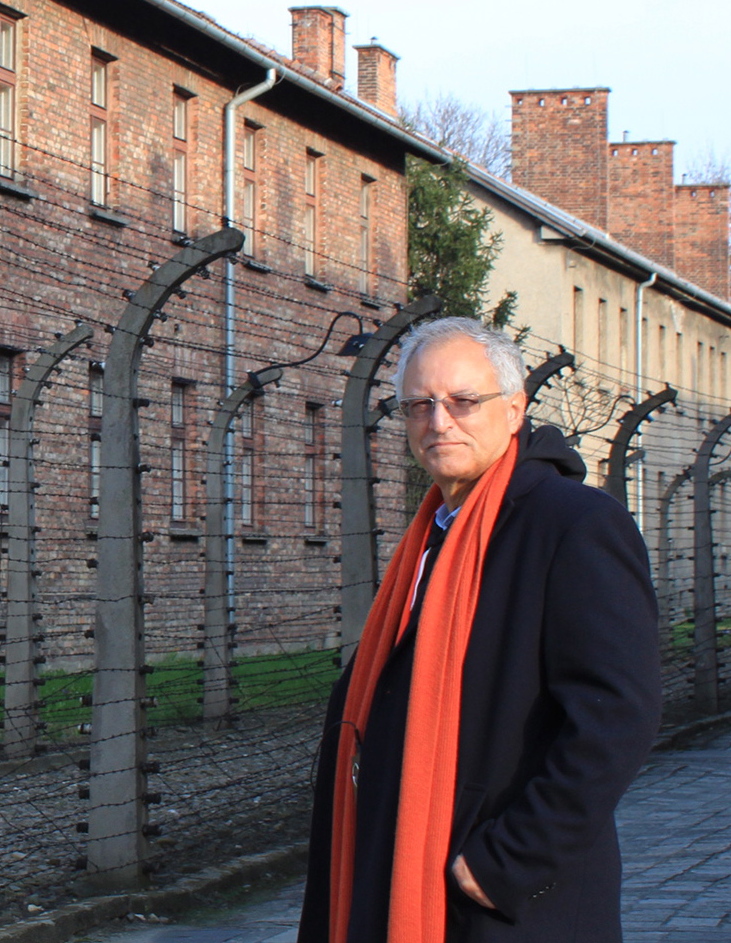JERUSALEM — Professor Mohammed Dajani took 27 Palestinian college students to visit the Auschwitz concentration camp in Poland a few weeks ago as part of a project designed to teach empathy and tolerance. Upon his return, his university disowned the trip, his fellow Palestinians branded him a traitor and friends advised a quick vacation abroad.
Dajani said he expected criticism. “I believe a trip like this, for an organized group of Palestinian youth going to visit Auschwitz, is not only rare, but a first,” he said. “I thought there would be some complaints, then it would be forgotten.”
But the trip was explosive news to some, perhaps more so because it took place as U.S.-brokered peace talks between Israel and the Palestinians were in danger of collapse, and emotion surrounding the decades-old conflict is high.
Controversy was also heightened by rumors — untrue — that the trip was paid for by Jewish organizations. It was paid for by the German government.
Dajani said that many Palestinians think the Holocaust is used by Jews and Israelis as propaganda to justify the seizure of lands that Palestinians say are theirs and to create sympathy for Israel. Others, he said, think the Holocaust is exaggerated or just one of many massacres that occurred during World War II.
“They said, âWhy go to Poland? Why not teach our young people about the Nakba?’ ” Dajani said.
The Nakba, or catastrophe, refers to the events of 1948 when the Arabs and Israelis fought a war, the Arabs lost, the state of Israel was born, and hundreds of thousands of Palestinians fled or were expelled from their homes and became a people of a diaspora, living even today as refugees here and across the Middle East.
An online version of an article about the trip published in the major Palestinian newspaper al-Quds was taken down by the publishers, reportedly because of heated invective in the comments section.
One reader said that taking Palestinian students to Auschwitz was not freedom of expression but treason.
Other critics of the trip included newspaper columnists, TV analysts and fellow researchers in the West Bank.
While the Palestinian students were visiting Auschwitz, a parallel group of Jewish Israeli students from Ben-Gurion University of the Negev and Tel Aviv University ventured to Bethlehem to hear Palestinians from the Dheisheh refugee camp tell their story. The responses of both groups of students — Israelis and Palestinians — would then be analyzed.
A firebrand in the Fatah political movement when he was young, Dajani said he is now a proponent of moderate Islam and moderate politics. He founded a group dedicated to both, called Wasatia, in 2007. He supports two states for two peoples and thinks Jerusalem should be shared by Israelis and Palestinians.
“He is a theologian and a pragmatist, and in that regard, he is unique here. He is also extremely brave,” said Matthew Kalman, a commentator at the Israeli daily newspaper Haaretz who broke the story of the Auschwitz trip.
Send questions/comments to the editors.



Success. Please wait for the page to reload. If the page does not reload within 5 seconds, please refresh the page.
Enter your email and password to access comments.
Hi, to comment on stories you must . This profile is in addition to your subscription and website login.
Already have a commenting profile? .
Invalid username/password.
Please check your email to confirm and complete your registration.
Only subscribers are eligible to post comments. Please subscribe or login first for digital access. Here’s why.
Use the form below to reset your password. When you've submitted your account email, we will send an email with a reset code.